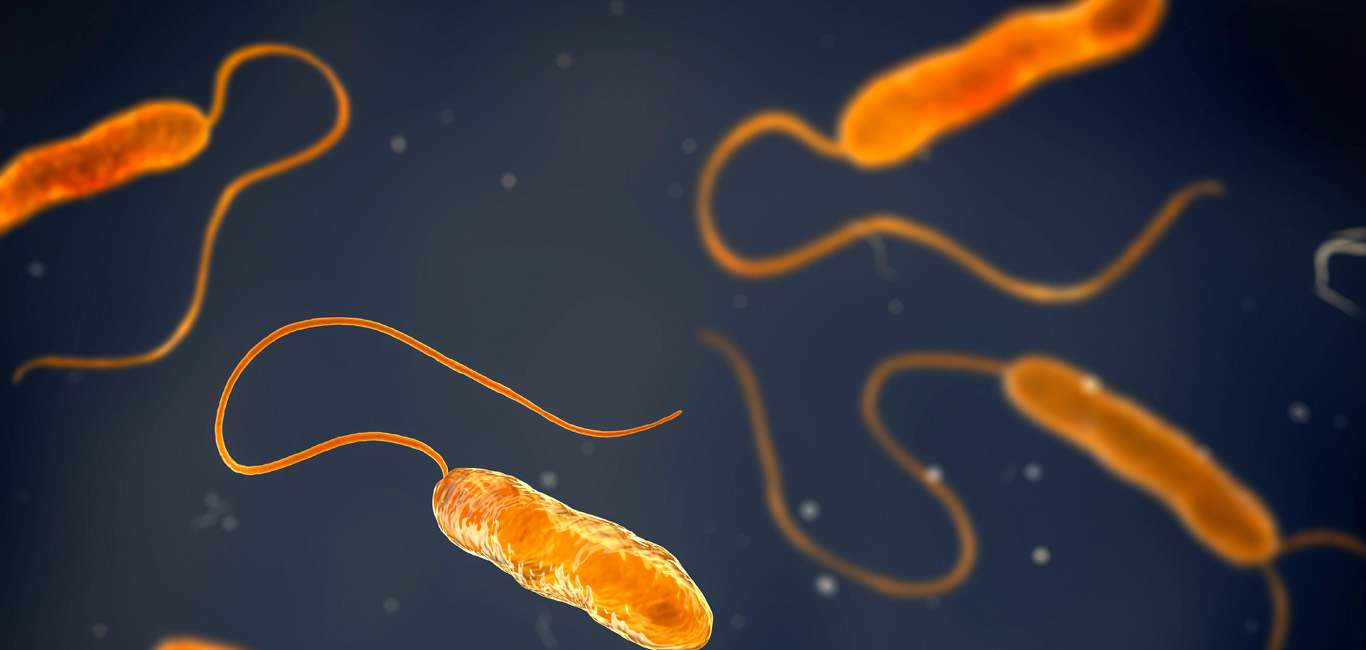
In the summer of 2016, Pranav Johri, then 33 years old, started experiencing groin pain. He assumed he had pulled a muscle. However, six weeks later he had developed other symptoms, including chills and a fever of over 100 degrees.
Upon consulting a doctor, he found out that he had chronic bacterial prostatitis, a condition usually caused by a bacterial infection. It results in an inflamed prostate gland and is treatable.
However, even after Johri went on the three-month regimen of oral and intravenous antibiotics, his symptoms did not reduce. It turned out that the bacteria causing the infection were resistant to the antibiotics. His urologist could only offer a bitter piece of advice — live with the condition.
Across populations, antibiotic resistance (a subset of antimicrobial resistance or AMR) is growing. Fuelled by the overuse of antibiotics in clinical, industrial and agricultural settings, antibiotic resistance is making several infections hard — even impossible — to treat.
Even the newest antibiotics that are created are expected to be outpaced considering the rate at which antibiotic-resistant bacteria are proliferating. For Johri, the untreatable nature of his condition came as a big blow. But he resolved to find a way.
“For the next 3 to 4 months, I devoted my life to learning about antibiotic resistance. I tried to find alternative treatments [for] a bacterial infection where antibiotics had failed. My eureka moment came when I came across phage therapy,” he says.
A century in the making
Bacteriophages are viruses that feed on bacteria. First identified by William Tort in 1915, they were soon put to use for their ability to kill bacteria.
Dr Sabrina Green, a researcher in Phage Therapy at KU Leuven University, Europe, says phages are a major part of the gut microbiota.
“Phages kill bacteria to keep their count in balance. Bacteria may overgrow and phage will infect and kill the bacteria that are susceptible to it. It’s a constant cycling that creates this ecosystem in our gut,” she says.
In the Republic of Georgia, phage therapy is part of age-old treatments for bacterial infections. The Eliava Phage Therapy Center, part of Georgia’s almost 100-year-old Eliava Institute, is well known for this therapy. Since 2011, it has been a treatment centre for individuals suffering from AMR infections. Their visitors have hailed from over 70 different countries.
After weighing his options and deciding that phage therapy was his best bet, Johri travelled to Georgia. He visited the Eliava Institute in November 2016 for his first course of phage therapy, becoming the first Indian to undergo treatment at the institute.
When he completed three courses of the therapy in 2017, his infection had cleared, along with his symptoms.
Under the microscope
Clinical studies on the phages from this institute are now underway. For conditions like chronic urinary tract infections and chronic bacterial prostatitis, the results have so far been promising.
Johri’s experience led him to found Vitalis Phage Therapy to raise awareness about the world of bacteriophage therapy. “Since we started in 2018, more than 150 patients in India have undergone phage therapy, and we are constantly trying to reach out to doctors and medical institutions to talk to them about it,” he says.
Of predators and prey: Bacteria and bacteriophages
Wherever bacteria exist, there also exists its predator – the bacteriophage. The human body hosts millions of microorganisms. A perpetual prey-predator relationship maintains ecological balance within this microflora.
“The number of phages always outnumbers the number of bacteria and are known to be in the ratio of 10:1 respectively. The entire bacterial population is killed off and reborn in the ocean waters on earth every five days,” says Johri.
Protecting the good bacteria
Apart from combatting antibiotic resistance, bacteriophages could also help those with imbalances in their gut microbiota. Being linked with everything from anxiety to onset of neurological and lifestyle diseases, the gut microbiome is significantly affected by antibiotic overuse, new studies have found.
In contrast, bacteriophages are useful alternatives as they only target infection-causing bacteria, keeping the gut microbiome intact.
A pilot study of 42 individuals by the University of Minnesota found bacteriophages apt for treating wound infections like chronic venous leg ulcers — with no side effects. One ongoing clinical study is evaluating the efficacy of bacteriophage therapy against Staphylococcus aureus, an infection most seen in diabetes foot ulcers.
It can also help improve gut health.
A randomised double-blind clinical study was done on 43 individuals in 2018 by a group of researchers from Colorado State University in the USA. The therapeutic use of a mixture of bacteriophages significantly improved the symptoms of gastrointestinal distress in the study participants.
The results have led many experts to agree that phages can be used as a treatment for most diseases with bacteria as a causative organism.
The benefits of bacteriophages over antibiotics
The administration of phages is comparable to that of antibiotics.
According to experts, there are several key factors that determine the efficacy and potential applications of these phages. They are:
- Phages are very specific as they kill only infection-causing bacteria without harming gut microbiota
- After the bacteria are killed, phages also become inactive and are eliminated from the body
- They can be potent alternative therapies for individuals who suffer from multi-drug resistance and are allergic to antibiotics
- They do not cause any side effects in human use
- Bacteriophages are active even when applied in very minute doses
The long road to phage therapy
“A particular phage will only target the bacteria against which it is active. It cannot be a one-size-fits-all model like that of antibiotics. This makes phage therapy an individualised treatment,” Johri warns.
This is one of the drawbacks of phage therapy: it cannot be taken as an over-the-counter drug like an antibiotic. The others are a lack of a specific regulatory framework and legal issues on the intellectual property of phages, which have been significant hurdles in wider acceptance of this age-old therapy.
“The presence of functionally relevant genes (important proteins that can kill the bacteria) is also an essential point for choosing the best phage for treating any bacterial infection,” says Antoine Culot, founder of Rime Bioinformatics in France.
Dr Green of KU Leuven University adds that, “sometimes with phage and antibiotics, there can be synergy. Thus, using both could be even more effective than using them alone.”
She says she is a big proponent of phage therapies being used as a tool in our arsenal to combat antibiotic resistance. Moreover, the phage-antibiotic synergy can be a potential drug model useful for treating multi-drug resistant superbugs.
As drug manufacturing processes develop worldwide, there is scope for phage therapy to be made available to all. Experts says it could become an accepted second or third-line treatment option within the next five years. This could have significance for those with AMR.

















